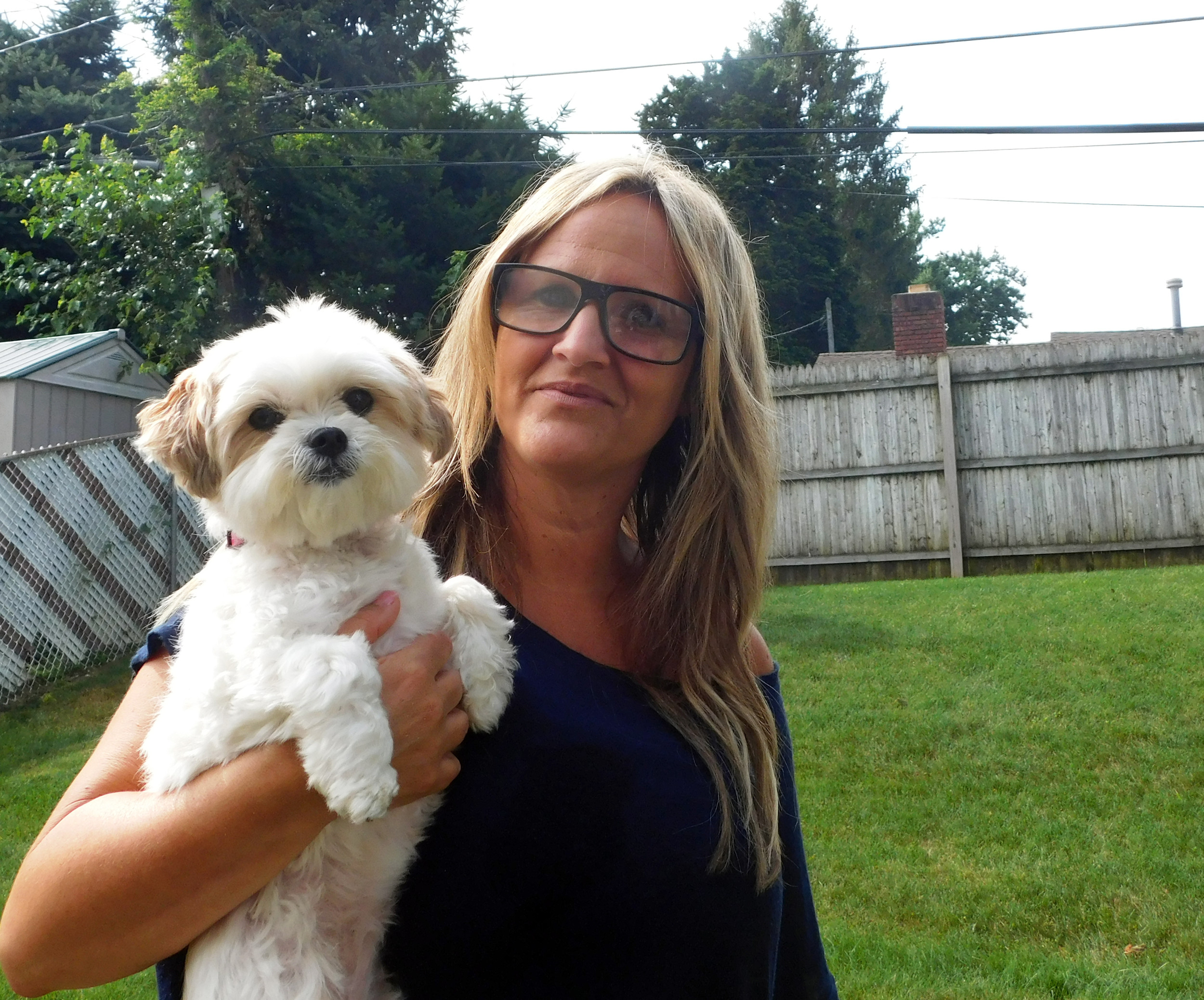A life cut short by addiction
Part One: Big dreams in jeopardy
First of two parts.
Claudia Marra said that she and her husband, Mario, spent the last day of his life on vacation in upstate New York with their two boys. The family was visiting relatives. It was the late winter of 2009, and they planned to take their young sons snow-tubing the next day.
Claudia and Mario’s happiness that weekend was tempered, she said, by the knowledge that once they returned to their home on the South Shore, Mario would check into rehab. It felt like a turning point after he had struggled with a crippling addiction to prescription painkillers for several years, she said. And she felt relieved.
“At that point, this was his last option to get help,” Claudia, now of Glen Cove, said. “My only fear was what I was going to tell our kids — why their dad won’t be home for the next 30 days or so. In hindsight, I had to tell them something even worse.”
That Saturday evening, the Marras went to dinner with their relatives after a day of playing outside with their sons. Mario seemed “nervous at first,” but soon calmed down. “Just let me enjoy the kids for the weekend,” Claudia recalled her husband saying, after he agreed to enter an in-patient rehab.
Mario was “already blue,” she said, and the two children looked on without understanding as Claudia and her brother-in-law tried unsuccessfully to revive him with CPR while they waited for an ambulance.
He was pronounced dead at 10 a.m. at the Catskill Regional Medical Center in Harris. The cause of death, according to the Sullivan County coroner’s report, was an overdose of the powerful opioid fentanyl, exacerbated by hydrocodone and the anti-anxiety drug alprazolam, commonly sold as Xanax.
Reading the headlines
Although eight years have passed since her husband’s death, Claudia said that she made the decision to go public with her story now after reading a series of Herald reports about Dr. Michael Belfiore, a Merrick physician who is facing a fall trial on federal charges of overprescribing opioids to patients — a total of hundreds of thousands of pills.
Belfiore, who last month had the charges against him dismissed on a technicality, is back in the spotlight after being re-indicted — this time implicated in the overdose deaths of two male patients from East Rockaway and Baldwin.
According to Claudia, when she read that the charges against Belfiore had been dismissed, and accounts of his defense — that drug companies’ misleading marketing and lax government regulation were to blame rather than he — she wanted to make sure her husband’s story was known.
Medical records indicate that Belfiore prescribed Mario Marra fentanyl on March 7, 2009. He died on March 15, according to the coroner’s report.
“I would like to see him go to jail,” Claudia said.
Belfiore has pleaded not guilty to all charges, and said on Tuesday that Marra was “jumping on a bandwagon” and trying to prejudice his case with an almost decade-old incident for which few records exist.
Big dreams, in jeopardy
In death, Mario Marra was described by the coroner as “a well-developed and well-nourished Caucasian male weighing approximately 231 pounds and who measured approximately 5 feet, 7 inches in length.”
Claudia described her husband as “a healthy, vibrant man.”
He was a born chef, she said, with “big dreams.” He loved to cook — especially an Italian veal dish called ossobuco — and for a time he operated a “wonderful and reputable” restaurant in Glen Cove.
Claudia said that her husband opened two businesses in the first year of their marriage, which would last for eight. He planned to open a new eatery on the South Shore, but after a few years of marriage, it became clear to her that something was awry. Soon, she said, her husband began to slip away from her.
Although she still can’t remember the initial injury or complaint that sent Mario to Belfiore’s office — Claudia said she vaguely recalled a knee injury — for the last three years of his life, she said, Mario’s chief priority was “going to see Dr. Belfiore again.”
Mario often went through withdrawals when he ran out of medication, she recounted, although she didn’t recognize it for what it was until things took a darker turn.
“I thought he had the flu,” she said. “He thought he had the flu, too. Sometimes he would go back to Belfiore because he didn’t feel good, and he would treat it like it was the flu and give him antibiotics.”
Mario regularly received prescriptions for hydrocodone, as well as Xanax for anxiety, although Claudia said that he never had anxiety issues before he started on the opioid regimen.
Claudia said she watched over the years as her husband drifted from opportunity to opportunity — never able to see any project through and rarely able to hold a job for more than several weeks. Eventually, the façade he managed to maintain with relative success began to fade, and his problems became harder to ignore. When Mario was on fentanyl, Claudia said, he was clearly not living in reality.
“He was delusional,” she said. “He was hallucinating. He thought that he was in the Civil War and thought he was on some mission.”
According to Claudia, she brought her concerns about her husband to Belfiore twice. The first time, responding to her questions about his confusion and mood swings, she said Belfiore told her, “That’s just him being Italian.”
As her husband’s “big dreams” evaporated and her boys witnessed frequent fights when she would hide Mario’s medication from him, Claudia said she became “a mess.”
Two weeks before his death, a frightening incident appeared to set Mario on the path to recovery, but it proved to be too late.
Next week: Part Two.

 56.0°,
A Few Clouds
56.0°,
A Few Clouds 




